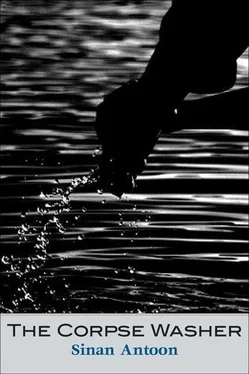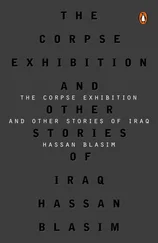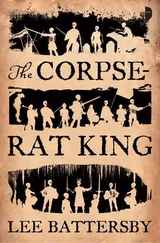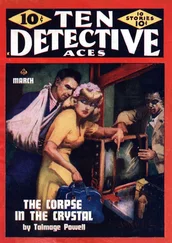“What are you writing?” Father asked when he saw me jotting down notes in a small notebook.
“I’m writing down notes about washing so as not to forget anything.”
He laughed: “You think this is school? Don’t worry. No exams here.”
He said that he’d mastered his profession through practice and without writing a single letter down, as had Hammoudy and all those who had worked with him before. His notebooks were all in his head, written down by the years. But he was quite patient with my many questions and I think was happy to see how serious I was in wanting to know everything about the details and rituals of the profession he wanted me to inherit. I sought his approval and wanted him to know that I, too, wanted to help him as my brother Ammoury had and that I could face death like a man.
I asked him once, just as I’d asked Mother before, why we wash the dead. He said that every dead person will meet with the angels and the people of the afterlife and God Almighty and therefore must be pure and clean. Decomposition must not show on the body, and its odor should be made pleasant. It should be covered so that the hearts of the living be not hardened. I also asked him about the differences between us and the Sunnis in washing. He said they were very minor indeed. Certain details involving the mention of imams and the writing of supplications on the shroud, but nothing major. He said that Christians and Jews may also wash a Muslim if there are no Muslims at hand. The important thing, he added, was to be possessed of noble intentions.
It was absolutely crucial that a man wash a man and that a woman wash a woman. I asked him what if there were no men around. He said a husband may wash his wife, mother, sister, and daughter. A mother may wash her son. I asked him what one should do if there were no camphor or lotus. He said it was acceptable to wash with water alone. “What if there is no water,” I asked.
He shook his head and smiled: “Wash with clean sand or dust.”
I asked why, and he said that the origin of life is water and dust and if there is no water for ablutions or washing, then pure earth can be used.
I asked whether he ever had to wash someone like that — without water. He said that the mghaysil had three water tanks on the roof in case there was a water shortage.
The great majority of bodies that Father washed were intact— except for a young man who had been hit by a speeding car as he crossed the street. When they brought his corpse, it was wrapped in blood-stained nylon. My father put on gloves and told Hammoudy to do the same before they carried the man’s body to the bench. I got goose bumps when I saw the body. It looked as if a pack of wolves had attacked it and devoured much of the skin and flesh. Father had once told me that as long as there is a part containing the heart, then one must wash and shroud. I felt that even though he was dead, the man would still feel pain if anyone touched his body. Father poured the water without rubbing or washing with camphor or lotus, but the blood kept flowing from time to time despite the three washes. He used huge quantities of cotton that day to stop the bleeding, but even after he’d shrouded the man, a stain of blood appeared on the right side. My father assured the family that this wouldn’t invalidate the shrouding.
An old man with long white hair and a long white beard wakes me up and says in a voice that seems to come from afar: Wake up, Jawad, and write down all the names! I think it very odd that he knows my name. I look at his eyes. They are a strange sky-blue color, set deep into his eye sockets. His face is laced with wrinkles as if he were hundreds of years old. I ask him flatly: Who are you? What names? He smiles: You don’t recognize me? Get a pen and paper and write down all the names. Don’t forget a single name. They are the names of those whose souls I will pluck tomorrow and whose bodies I will leave for you to purify. I get out of bed and bring a pen and a notebook and kneel on the ground before him and say: I’m ready. He shuts his eyes and starts to recite hundreds of names, and I write down every one. I don’t remember how long we have done this, but he opens his eyes after he reads the last name. He takes a deep breath and says in a low voice: Tomorrow I shall return. Then he disappears. When I look at the notebook in front of me, I see only one sentence which I’ve written hundreds of times on each page: Every soul shall taste death.
I said nothing to Father about the slight boredom I was experiencing by the end of the first summer. But I told Ammoury, who chastised me for acting like a spoiled baby. “This is not a game,” he said. I should grow up and recognize the importance of what Father was doing and why we needed to help him out.
I had gotten used to seeing the dead up close, but hadn’t touched a single body throughout that first summer. In the beginning of my second summer, I went back to help out my father. Those hot days passed very slowly, at times with no washing whatsoever. The air conditioner in the side room was no match. After one month, Hammoudy fell sick and couldn’t work. For two weeks in July, I had to assume a more active role.
I still remember how cold and strange the first body I helped my father wash and shroud felt. It was an old man in his sixties. His skin was heavily wrinkled and yellowed. He gave off a horrible smell. That day I realized the wisdom of using ground lotus leaves and camphor.
The sight of him reminded me of the fish my mother used to put on the kitchen table to clean before cooking. I was curious to touch the fish’s skin but felt a mixture of fascination and disgust afterward. I spent a long time looking at the fish as it lay on its side. With its open mouth and thick lips, its head looked like a human head, crying out, demanding to be returned to the water. The eye, too, was open looking into our eyes. We, who were about to devour it.
The eyes and mouth of the dead man were both shut. He was asleep and would never wake up again. Father noticed how nervous I was and how hurried and clumsy I was in pouring the water. As if wanting the whole thing to be over. Twice he had to tell me: “Slow down, son! Take it easy!” When we finished I rushed out to the street to catch a breath of fresh air.
He stepped into the classroom confidently, carrying a leather bag out of which he took a stack of drawing pads and a sack full of pencils that he put on the table. He went to the board and wrote in a nice script and big letters: FAN, art. Then he wrote his name in smaller letters: Raid Ismael. He was in his early twenties, with curly black hair and a thick beard. His light green shirt lit up his dark face. When he turned toward us and smiled, most of the students were still in recess mode and hadn’t noticed his entrance. He clapped three times to get their attention and said: “Come on, guys. Please. Back to your places. Let’s get started.” He pointed to his name on the board. “My name is Raid.”
At school, sports and arts classes were ignored and we often spent those classes (especially arts) playing soccer, or trying to sneak out to roam around the neighborhood. Some years we would get teachers assigned for arts, other years we wouldn’t. Dealing with sports was easier, because all the teacher needed was a few balls and some exercises. Arts, however, was a more challenging subject. Our school didn’t have a special arts room, and the administration wasn’t keen on providing the necessary material for teachers. Energies and resources were channeled into more “serious” subjects. Thus most arts teachers, if they bothered to show up at all, killed time by chatting with us or letting us do our homework for other classes. Meanwhile, they would read the newspaper or look out the window, asking us to keep it down when we became too noisy.
Читать дальше












